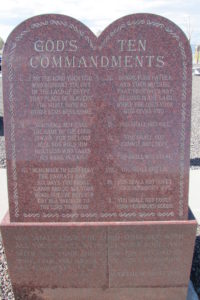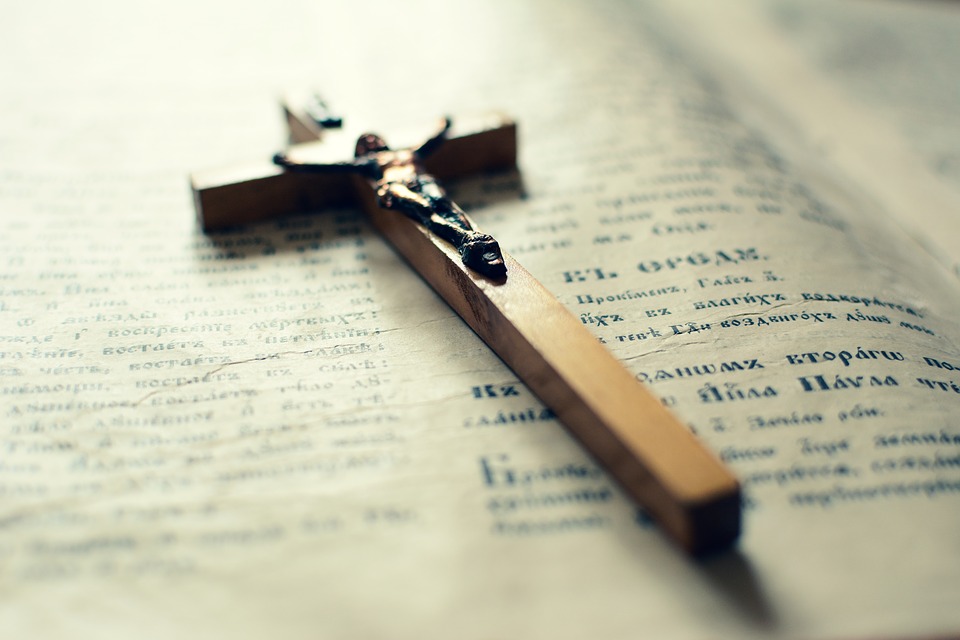Adults who are preparing for this sacrament have not grown up in the Catholic Church and probably feel they have a lifetime of sins to confess. And that could be true but the thing to remember, in preparing for this sacrament, is that a laundry list of your sins is not needed.
Well ahead of time
You’ll probably need a good chunk of time to prepare for your first reconciliation. This is not something you can prepare for one night before the event. For those going through the process of becoming a Catholic, this can literally take months and chances are you’re going through the Rite of Christian Initiation for Adults (RCIA).
To help you in your thought process, a journal is quite valuable. Discuss with your RCIA leader ways to get ready for reconciliation. The RCIA leader will have many ideas and ways to help you adjust to the idea of confession and get you ready for the process. Your sponsor will also probably be a large source of comfort and information during this time.
First things first
A large and important part of preparing for first reconciliation is to examine your conscience. To do this requires attentive, prayerful thought. Begin with the ten commandments. Ask yourself if you’ve gone against any of the commandments.
 For many adults, this is extremely difficult because you might actually have broken the commandments, either knowingly or unknowingly. Go over each commandment and really think about it. Which guidelines have been trying and troublesome for you throughout your life?
For many adults, this is extremely difficult because you might actually have broken the commandments, either knowingly or unknowingly. Go over each commandment and really think about it. Which guidelines have been trying and troublesome for you throughout your life?
Be honest with yourself. While it’s not easy, do not hide from your past and the things you have done. If you have large, mortal sins, you’ll want to address these in your first confession but you do not need to walk into the meeting with the priest with a physical list, done in minute detail. Keep a running list in your head of what areas you must tell the priest about.
Questions
While you need to address the past, you also need to address right now and where you can improve. This is where your journal can be crucial. Ask yourself hard questions in writing. What sins are holding you back in life? What areas could you be doing better in? Are you kind to your family, friends, and neighbors? Do you speak ill of people knowing full well it will harm their reputation? What kind of example do you set for your family, friends, and community?
Take each question a day or two at a time. Don’t try to do this all at once. Really dig into your heart and soul and honestly assess how you behave on a day to day basis. Know though, that no one hits the mark on every single aspect of being a good Catholic. It’s impossible to get all things right and it’s not shameful if you confess it and try to do better.
Universal but different
Every church is different. There will probably be different norms in each parish. How you set up an appointment for reconciliation, how you actually confess, be it behind a small shade, face-to-face or in a confessional booth, varies from one place to another. It can actually vary from parish to parish within a diocese. So, make sure you get all the information you need ahead of time. And again, if you’re in the RCIA process, you’ll find all this out from your group leaders. Be sure to follow their directive.
Confession
When you actually go to confession, while it varies slightly from parish to parish and priest to priest, the basics go something like this-
You and the priest make the sign of the cross. The priest may read from the Bible or say a prayer before you actually begin to admit your sins.
You begin your confession by saying, “Bless me, Father, for I have sinned. This is my first confession.” It’s important that the priest know this is your first time. This way he’ll know to prompt you and really walk you through this process. Later, on your next confession, you’ll say, “Bless me, father, for I have sinned. It’s been X amount of time since my last confession.”
 After you open your heart and acknowledge your behavior, the priest will ask you to pray. He may also have some words of wisdom for you on how to avoid your sins in the future. This is usually when the Act of Contrition is said. If you can’t memorize it, it’s perfectly okay to bring a copy of the prayer to read.
After you open your heart and acknowledge your behavior, the priest will ask you to pray. He may also have some words of wisdom for you on how to avoid your sins in the future. This is usually when the Act of Contrition is said. If you can’t memorize it, it’s perfectly okay to bring a copy of the prayer to read.
The priest will then grant absolution. Notice that he’ll normally say something to the effect of, “I absolve you of this and all your sins.” So, even if you’ve forgotten to tell him everything, this absolves you of all of your sins, spoken and unspoken.
Penance is normally given after confession. Penance can be prayers, scripture readings or actions the priest thinks you should do but whatever it is, it’s nothing to fear. It’s normally tied to your issues and problems and will really help you to not sin again and begin your healing journey.
Things to remember
When you’re going through this process, remember that this is a sacrament of healing. If you go into reconciliation with the idea that you’ll have God’s forgiveness and you’ll be healed afterward, it will be a better experience. Remember that no sin is bad enough for God not to forgive you and continue loving you.
Also, remember that you have to change. This sacrament is about acknowledging your sore points, getting forgiveness and going back into the world as a changed person. Confession does not give you license to do the wrong thing again, and just run to the priest and get absolution. Reconciliation is about becoming a better person and Catholic with the help of God.
Afterward
Chances are, after you’ve confessed, been given absolution and done your penance, you’re going to feel really good. While you might not want to confess every week, you’ll probably be less anxious the next time you go.
Reconciliation isn’t about how bad you are, it’s about how you want to do better and after you go through it once, you’ll more than likely see that. The anxiety and the fear will disappear and you might end up actually looking forward to it the next time.






